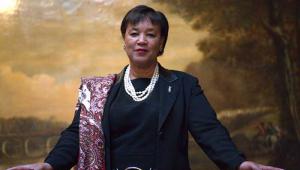The bill, which was approved by the Ukrainian parliament on Tuesday, will see government officials and their relatives file electronic declarations of their income and assets online for public scrutiny.
Hours before a visit to Brussels on Wednesday, Ukraine’s president Petro Poroshenko launched a national anti-corruption agency, which had not been formally constituted after it was announced last March due to a dispute over who should sit on its elected board of directors.
At a joint press conference at the conclusion of Poroshenko’s visit yesterday, commission president Jean-Claude Juncker said the “huge reforms” undertaken by Ukraine would now allow the commission to make a proposal for visa liberalisation in April.
The now-operational National Agency for Prevention of Corruption will oversee the implementation of the bill on the electronic declaration of assets, which the EU says will bring Ukraine in line with international transparency standards.
Officials will face criminal charges for any inaccurate or falsified information declared.
The NAPC will also hold a number of other functions, including the audit of political parties’ finances.
The board of directors of the NAPC was announced just hours before Poroshenko flew to Brussels earlier this week, after government representatives agreed to compromise and vote for two candidates they previously opposed but were favoured by civic activists.
The election of these final two members completed the board of directors. They were Ruslan Radetzky, a lawyer, and Ruslan Riaboshapka, an anti-corruption expert and former deputy justice minister.
Ukraine has continued to be rocked by corruption accusations long after protests in 2013-14 ousted former president Viktor Yanukovych.
Poroshenko was elected in May 2014 on an anti-corruoption mandate, but has struggled to deliver amid political squabbles, no confidence votes and stalled reforms.
In February this year the International Monetary Fund threatened to withdraw its $17.5bn bailout programme for the country’s troubled economy following continued allegations of corruption within the government.
The warning came following the resignation of Ukraine’s economic minister Aivaras Abromavičius and his team, who stated he had no “desire to serve as a cover-up for covert corruption”.
The IMF later said it would continue to provide support to Ukraine after “constructive” talks with Poroshenko convinced the fund’s managing director Christine Lagarde that the pace of reforms would be increased.













